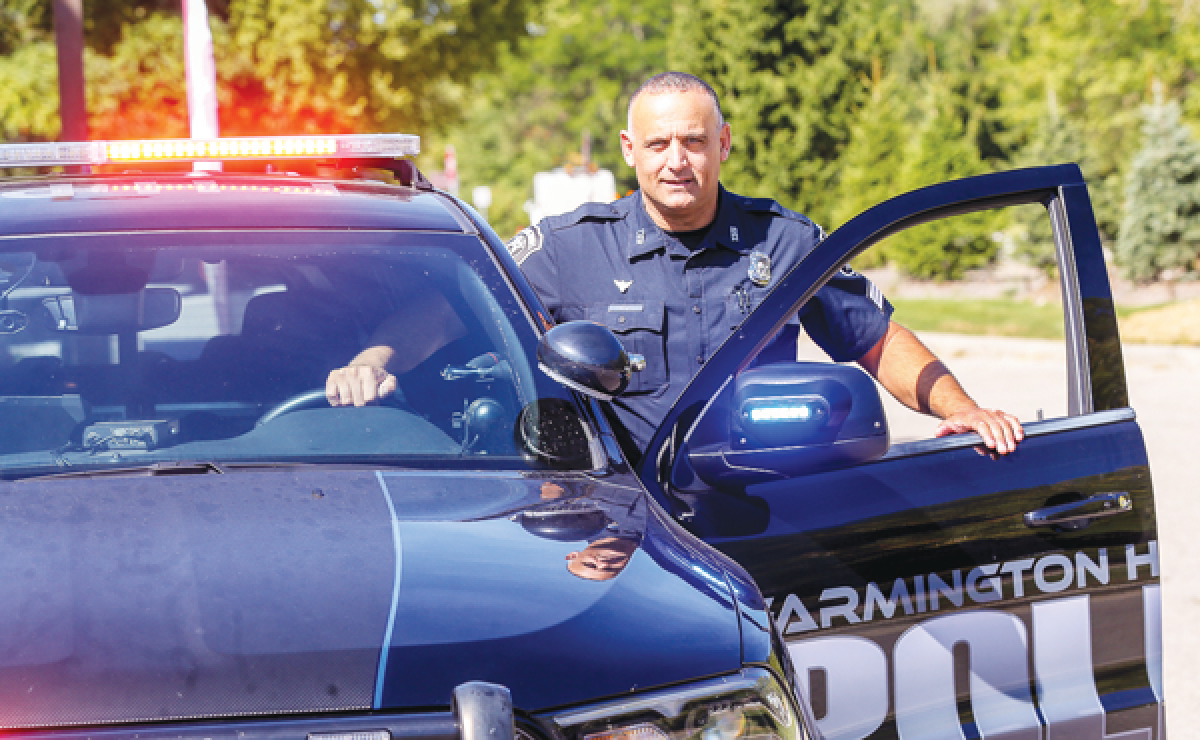FARMINGTON HILLS — According to a recent report, Michigan has some troubling statistics.
Bridge Michigan reported that drunk-driving arrests have dropped 28% in the state since 2014, while fatal alcohol and drug-related crashes have risen 40%.
In 67 of Michigan’s 83 counties, including Oakland, drunk-driving arrests have declined, which mirrors a national trend, according to the report.
The rise in crashes is being attributed to fewer police officers and less traffic enforcement, which is leading to more dangerous driving behavior, the report states.
“There’s just less traffic enforcement,” Jonathan Adkins, who is the CEO of the Governors Highway Safety Association, a Washington, D.C.-based nonprofit that represents state highway offices, stated in the report.
With a decline in the number of police officers patrolling for drunk drivers, there’s “greater willingness to drive dangerously,” according to Adkins. “They don’t think they’re going to be caught.”
From 2014-2023, drunk-driving arrests were down 20% in Oakland County, 15% in Macomb County, 16% in Wayne County and 22% in Kent County, according to annual state drunk-driving audits, Bridge Michigan reported.
Ron Wiles, who is the deputy director of the Michigan Association of Chiefs of Police, reported that the number of police officers in the state has declined from 19,262 in 2014 to 18,879 last year.
A negative perception of police work, due to incidents such as when George Floyd was killed by a police officer in Minnesota in 2020, have led to what Wiles described as a “hiring crisis” in law enforcement.
According to Farmington Hills Police Department Chief Jeff King, his department does not have staffing issues.
In Farmington Hills, the department currently has 114 out of an authorized 115 officers on staff, and according to King, the department is looking to hire one new officer to bring them to 115.
“A lot of agencies are anywhere from like 3%-10% below authorized staffing,” King said.
King explained how many officers are on road patrol at a given time.
“In general, at our lowest point, which is our midnight shift, there are eight or more working, sworn officers on patrol at that time,” he said. “It ranges from eight all the way up to, conservatively, 15.”
King estimated that Farmington Hills had around 200 alcohol and/or marijuana-related impaired driving arrests or actions last year.
“So we don’t have staffing issues,” King said. “We’re very aggressive in our enforcement actions. … We’re definitely out there trying to enforce it, trying to keep the roadways safe.”
King thinks that staffing is “absolutely” a factor when it comes to proactive policing, and with many agencies throughout Oakland County and southeast Michigan still struggling with staffing shortages, he shared what Farmington Hills has done to help avoid that from being an issue recently.
“I know in our agency we don’t have the recruiting issues that some other departments have,” he said. “One of the biggest things (is) we returned back to a traditional-style pension. … We did alter our pension to make us kind of a leader – not only in training, equipment and opportunity – but now pay and compensation. It was a game-changer in our ability to recruit, even senior officers from other departments.”
From King’s perspective, what also helps Farmington Hills is having strong prosecutor support at both the district court level and from Oakland County when it comes to alcohol-impaired driving enforcement, and that there are not a lot of alcohol establishments in the city.
What he thinks could make things even better is a roadside test for marijuana-impaired drivers.
“I think you’ll see a sharp spike in those type of arrests once a reliable, legal roadside test is implemented,” said King, who is part of the governor’s safety board and the chair of the Michigan Association of Chiefs of Police Committee. “Right now there’s a real hard push by some groups in Michigan to reduce the impaired BAC (blood alcohol concentration) level from 0.08 to 0.05, and the only state that’s done that, I think, is Utah. I think some other states are looking at it, but there just doesn’t seem to be that kind of push here locally.”
In regard to a roadside marijuana test, King said, “I think one day we’ll get there, I just don’t know what day that will be.”
King is of the opinion that the negative perception that law enforcement has endured in recent years is “swinging back.”
“Law enforcement is very cyclical,” he said. “It kind of ebbs and flows. … We’re seeing it come back quite a bit right now.”
As for his department, King referred to it as the best on the face of the earth.
“We’re going out there and we’re enforcing the law, keeping people safe,” he said. “We’re doing it without prejudice or partiality. We’re doing it in a professional manner. We’re working with our community. That’s a major sign, the hardcore evidence that your community supports you.”
 Publication select ▼
Publication select ▼






















